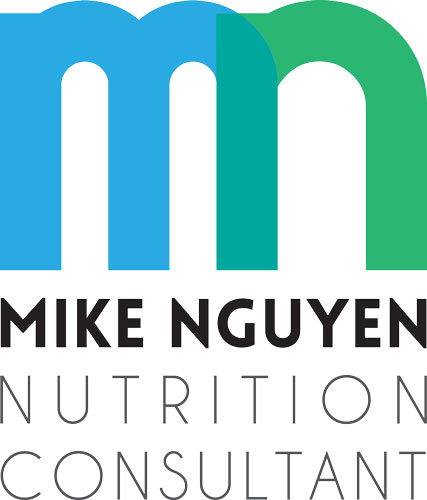Sugar in small and occasional quantities may not be so harmful to our bodies, but it is often difficult to moderate our intake of this sweet, addictive substance. For many individuals an innocent bite of a brownie or cookie can lead to a desire to consume anything and everything sweet to feed the mental and physiological addiction and cascade that has begun.
Here are a few convincing reasons to ditch the sweet stuff if you weren’t convinced already.
Sugar:
- Increases the body’s production of adrenaline and cortisol (a hormone that has been linked to weight gain if chronically elevated).
- Causes blood sugar to surge, insulin to spike, and fat to be deposited throughout the body.
- Draws on the body’s stores of vitamins and minerals for its metabolism, reducing nutrient reserves. Chromium, a mineral that helps the body utilize glucose more effectively is depleted with excess sugar consumption.
- Feeds yeasts, fungi, and other toxin-producing organisms.
- Could contribute to systemic chronic inflammation — long-term inflammation has been linked to many diseases.
- Burdens the liver and can possibly damage the liver the same way alcohol does if overconsumed.
- Inhibits immune system function which could result in an increased susceptibility to colds and flus.
According to Dr. Lustig, Professor of Pediatrics in the Division of Endocrinology at the University of California, fructose is a “chronic, dose-dependent liver toxin.” And just like alcohol, fructose is metabolized directly into fat – not cellular energy, like glucose (Mercola).
For an in-depth lesson on how sugar exactly behaves in our bodies, I highly recommend you take some time to watch this YouTube video:
Robert Lustig, MD — Sugar: The Bitter Truth
https://www.youtube.com/watch?v=dBnniua6-oM
Very informative info here and highly scientific at a times, but the facts don’t lie!
“So, that’s depressing…what can I eat if I’m craving something sweet?”
Instead of consuming baked sugary treats, white-flour and gluten-containing processed goods, or candy opt for the following foods. Though they may taste somewhat sweet and satisfy your sweet craving, they are whole, unprocessed and contain many more vitamins and minerals than their processed and refined counterparts, devoid of any real nutrition.
- Whole fruit (berries are naturally sweet and contain antioxidants and fiber, baked apple slices sprinkled with cinnamon, a banana with almond butter). Do keep in mind that those trying to address certain health issues, such as weight gain and blood sugar regulation may be better off without the fruit altogether, or at least kept to a minimal intake.
- A tablespoon of organic, extra virgin coconut oil stirred into a warm cup of herbal tea can satisfy a craving for something sweet (herbal/decaffeinated teas that go well with a coconut flavor: ginger, rooibos, dandelion root, cinnamon).
I love this brand of coconut oil:
Nature’s Way Extra Virgin Organic Coconut Oil, 32-Ounce
And this is a current favorite tea of mine:
Pukka Organic Tea Caffeine Free, Three Cinnamon, 6 CountTry the cinnamon tea with the spoonful of coconut oil…delicious and healthy, especially considering that cinnamon has been shown to help maintain healthy blood sugar levels…it’s a win-win!
- A glass of coconut water (naturally sweet without added sugar and a great source of potassium and electrolytes).
This is the best-tasting coconut water, in my opinion:
Harmless Harvest Organic 100 Percent Raw Coconut Water, 16Ounce — 12 per case.
Or consider taking a small break from sugar and sweet-tasting foods altogether in order to reset your taste buds and acquaint yourself with the wide array of whole, natural foods that exist that don’t trigger addiction and irregular blood sugar patterns. If you think you’d like to take a break, a sugar detox could benefit you.
Read more here about the 21-Day Sugar Detox that I recommend:
http://chewgoodstuff.21dsd.com
If you have questions about the detox and may consider partaking in the program, feel free to email me with any questions as I am a certified 21-Day Sugar Detox coach and would be glad to address any concerns you may have and could potentially coach you along your journey.
mn@mikenguyennutrition.com
Be Well,
Mike
Photo credit: cookies (at top of post): D Sharon Pruitt
References:
Bauman, Ed. Bauman College Nutrition Consultant Handbook: Immune Health.
Mercola. articles.mercola.com “The Amazing Similarities Between This Toxic Sugar and Alcohol. 2012.
Teitelbaum, Jacob and Fiedler, Chrystle. Beat Sugar Addiction Now. Beverly, 2010.
If Sugar: Sweet or Not? was helpful, please share this post with a friend so that they too may learn something from reading it.
And to read more about the dangers of sugar, click here.
Also, if you’ve yet to subscribe to my newsletter, you can do so here. This monthly newsletter is a great way to stay informed with nutrition news, tips and tricks, while also receiving free recipes and other giveaways from time to time. Don’t miss out!
Mike is a holistic nutritionist that helps people feel more optimistic about their health and wellness through changes in diet and lifestyle shifts.
He has authored posts and articles featured on MarthaStewart.com, today.com, and iVillage.com.

